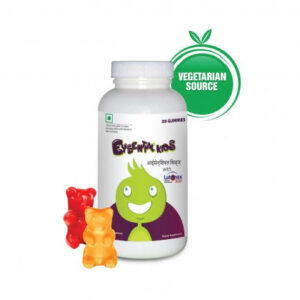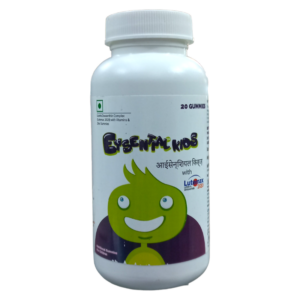LUTEIN + ZEAXANTHIN
Lutein: Lutein is a carotenoid, which is a type of pigment found in plants. It is commonly taken as a dietary supplement and is also found in certain foods such as spinach, kale, and oranges. Lutein is known for its potential benefits in promoting eye health.
The primary use of lutein is to support and maintain healthy vision, especially as a preventive measure against age-related macular degeneration (AMD) and cataracts. AMD is a condition that leads to central vision loss in older adults, while cataracts cause clouding of the lens in the eye and can lead to vision impairment.
Lutein acts as an antioxidant in the eyes. It protects the retina from damage caused by free radicals and filters out harmful blue light, which can cause oxidative stress in the eyes. Additionally, lutein may improve visual function and contrast sensitivity.
The appropriate dose of lutein varies, but a common dosage ranging from 10 to 20 milligrams per day is often recommended. It is important to note that the dosage might be different based on individual needs, and it is always advisable to consult with a healthcare professional before starting any new supplement regimen.
Lutein is generally considered safe with no known serious side effects. However, some users may experience mild side effects such as yellowing of the skin (due to the pigmentation), digestive disturbances, or allergic reactions. Individuals who are allergic to marigold or related plants may have an increased risk of an allergic reaction to lutein supplements.
It is worth mentioning that lutein should not be used as a substitute for proper medical care. If you have any eye concerns or conditions, it is crucial to seek advice from an eye care professional for appropriate diagnosis and treatment.
Zeaxanthin: Zeaxanthin is a natural carotenoid dye found in various fruits and vegetables, particularly in yellow and green leafy vegetables. It is also available as a dietary supplement. Zeaxanthin is commonly used for its potential benefits in promoting eye health and preventing certain eye conditions.
The primary mechanism of action of zeaxanthin is its antioxidant properties. It helps protect the cells in the eyes from oxidative stress caused by harmful free radicals. Zeaxanthin is specifically known for its role in protecting the macula, a small but highly sensitive part of the retina responsible for central vision.
The recommended dose of zeaxanthin can vary based on individual needs. Typically, a range of 2 to 10 mg per day is considered safe and effective for eye health support. However, it is advisable to consult with a healthcare professional or follow the instructions on the product label for appropriate dosage guidance.
Zeaxanthin is generally well-tolerated, and side effects are rare. However, in some cases, high doses may cause mild digestive discomfort such as nausea, diarrhea, or stomach cramps. Allergic reactions to zeaxanthin are extremely uncommon but may include rash, itching, or swelling.
It is important to note that while zeaxanthin has shown potential benefits for eye health, it should not replace regular eye examinations or medical advice from an ophthalmologist. Individuals with existing eye conditions or concerns should consult their healthcare provider before starting any new supplements.


